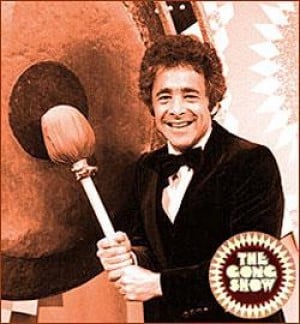Sorting out who and whom
With music for today's lesson by

Having trouble figuring out the difference between who and whom? I'm hoping your troubles will end after you read today's lesson.
It will take a bit of explanation, but the quick and simple
formula
 goes like this:
goes like this:Who is for subjects and whom is for objects.
Remember that and the rest should be fairly easy.
First of all, both who and whom are pronouns. What's a pronoun? Here's one definition:

Or you could try Merriam-Webster's take, which oddly enough fails to even mention "amateur status"!
pro·noun
noun \ˈprō-ˌnau̇n\Definition of PRONOUN
:
any of a small set of words in a language that are used as substitutes
for nouns or noun phrases and whose referents are named or understood in
the context
Those substitutes mentioned in the definition are pronouns like who, whom, he, she, I, you, me, us, someone, nobody, they, your, them, this, those, him, few, another, each, neither and so on.
Unless you're The Incredible Hulk  ("Hulk is angry. Hulk does not like clobberin' time. Hulk thinks clobberin' time is dumb!") you use pronouns all the time to vary your speech and writing.
("Hulk is angry. Hulk does not like clobberin' time. Hulk thinks clobberin' time is dumb!") you use pronouns all the time to vary your speech and writing.
 ("Hulk is angry. Hulk does not like clobberin' time. Hulk thinks clobberin' time is dumb!") you use pronouns all the time to vary your speech and writing.
("Hulk is angry. Hulk does not like clobberin' time. Hulk thinks clobberin' time is dumb!") you use pronouns all the time to vary your speech and writing.
The key here is knowing which pronoun to use, who or whom (or whoever/whomever).
To do that, you have to know the difference between a subject pronoun and an object pronoun.
Basically, the subject is the person or thing doing the action:
Who hit the home run? ("who" did the hitting)
He is the one who dropped the ball ("who" did the dropping)
Whoever eats the last cookie needs to buy more. ("Whoever" does the eating)
The object is the person or thing that is either the direct or indirect result or recipient of the subject's action.
The  dictionary describes a direct object as a word or phrase denoting the goal or the result of the action of a verb.
dictionary describes a direct object as a word or phrase denoting the goal or the result of the action of a verb.
 dictionary describes a direct object as a word or phrase denoting the goal or the result of the action of a verb.
dictionary describes a direct object as a word or phrase denoting the goal or the result of the action of a verb.Example:
He threw the rock. The direct object, the word that is "the result of the action of a verb," is rock. He (the subject) threw (the verb, the action taking place) ... threw what? He threw the rock, the direct result of his action. Thus it is called the direct object, for it is the "object" most directly impacted by the action.
An indirect object is defined as a grammatical object representing the secondary goal of the action of its verb.
That sounds a bit fancy, but it means an object that is, as the term suggests, indirectly involved in the action.
The dictionary has a good example:
In the sentence “They built a house for her,” the direct object is “house” and the indirect object is “her.”

To break it down, the direct result of the action "built" was what? A house was built. "Her" indirectly was impacted (the action or verb didn't involve her directly, only the house), as in the house that was built was given to her. Thus "her" is the indirect object.
A few more examples just to make it clear:
1) John gave Ella the book. The book is the direct result of the action "gave," as in he gave what? He gave the book. Ella is the indirect object that is indirectly impacted by the action, the giving. Why is she indirect and not direct? Because John (subject) gave (verb) the book (direct result of the action or verb) ... John didn't "give" Ella, he gave something TO Ella. Got it?
2) Mom fed the baby her bottle. Mom (subject) fed (action or verb) .... fed what? She fed the bottle (the direct object) TO the baby (the indirect object).
One final note and I'll move on to who/whom: Whenever you use a preposition (with, of, from, for and many more) to make a prepositional phrase, the item inside the phrase takes an objective pronoun, not a subjective pronoun.
Some correct examples (the prepositional phrases in italics):
He did it for me. (objective pronoun me)
For Bill and me, it was fun. (objective pronoun me)
With us involved, it was easy. (objective pronoun us)
Now how does all this relate to who vs. whom? If the pronoun is the subject, you use who. If it's an object (direct or indirect or the object of the prepositional phrase), then you use whom.
Who:
Who are you? 

Who wants the last cookie?
Who did that?
Are you the man who called?
She is someone who is an expert.
This is who I am.
Whom:
He told the police whom he shot. (He is the subject, shot is the action and whom is the object or recipient of that action)
With whom are you writing that book? (As object of the prepositional phrase, an objective pronoun goes there, as in whom and not who)
If I knew whom to tell, I would. (I is the subject, tell is the action, so whom is the object or item receiving the telling)
Whom did he call? (He is the subject, call the verb and the recipient or thing impacted by the call is the object, or whom)
A few tricky constructions:

Some sentences may seem to call for whom, but you have to sort through the wording to attach the subject to the verb and ignore what is essentially a parenthetical phrase between the two.
What do I mean?
Sue is the one who police believe is the killer. You might look at that sentence and think whom because you have a subject, police, and a verb, believe, so who/whom here must be an object and thus whom, right? No. Who is in this construction not an object but the subject, or the killer. This is what I mean by essentially a parenthetical phrase. If you put "police believe" in parentheses it becomes a lot clearer:
Sue is the one who (police believe) is the killer. Do you see it now? You would say who is the killer? and not whom is the killer? Draw an arrow from who to is and the path is clear.
Another similar example:
John is the one who many feel is the best candidate. As in "who is the best candidate," not whom is ... again, put the stumbling block words "many feel" in parentheses and it is clearer:
John is the one who (many feel) is the best candidate.
One last example:
Who shall I say is calling?
This actually comes from an old Richie Rich  comic book. The butler Cadbury answers the door and correctly makes that statement, but the person at the door "corrects" him and says he should have said "whom." Like the other examples, look at the words logically and leap over what is essentially a parenthetical phrase (shall I say). What he is saying is "who is calling?" and certainly not "whom is calling?" So look at it like this to get a clearer picture:
comic book. The butler Cadbury answers the door and correctly makes that statement, but the person at the door "corrects" him and says he should have said "whom." Like the other examples, look at the words logically and leap over what is essentially a parenthetical phrase (shall I say). What he is saying is "who is calling?" and certainly not "whom is calling?" So look at it like this to get a clearer picture:
Who (shall I say) is calling?
 comic book. The butler Cadbury answers the door and correctly makes that statement, but the person at the door "corrects" him and says he should have said "whom." Like the other examples, look at the words logically and leap over what is essentially a parenthetical phrase (shall I say). What he is saying is "who is calling?" and certainly not "whom is calling?" So look at it like this to get a clearer picture:
comic book. The butler Cadbury answers the door and correctly makes that statement, but the person at the door "corrects" him and says he should have said "whom." Like the other examples, look at the words logically and leap over what is essentially a parenthetical phrase (shall I say). What he is saying is "who is calling?" and certainly not "whom is calling?" So look at it like this to get a clearer picture:Who (shall I say) is calling?
It's time to wrap it up.
My next post will discuss this and that. And for that matter these and those. Stay tuned ...




 Look up the word. Physicians treat a patient and then make a
Look up the word. Physicians treat a patient and then make a 
 In 2013 in the United States, for example, summer just began June 21.
In 2013 in the United States, for example, summer just began June 21.  Same with savior, colour, defence, metre, labour or scores of other words spelled differently in the United Kingdom. Way, way, wayyyyyyy too many people seem to think theatre is the preferred word to make a writer seem more sophisticated. NO!
Same with savior, colour, defence, metre, labour or scores of other words spelled differently in the United Kingdom. Way, way, wayyyyyyy too many people seem to think theatre is the preferred word to make a writer seem more sophisticated. NO! serviceman, fireman
serviceman, fireman "Everyone's got a right to be wrong/dumb ... but you ABUSE the privilege!"
"Everyone's got a right to be wrong/dumb ... but you ABUSE the privilege!" or in other words repeating what many others already have posted. My reply is that millions of teachers and coaches around the world would be out of work if every last lesson they taught had to be completely original, never-taught-before material. How would anyone learn anything? How would you learn a foreign language, for example, if each lesson had to contain unique information?
or in other words repeating what many others already have posted. My reply is that millions of teachers and coaches around the world would be out of work if every last lesson they taught had to be completely original, never-taught-before material. How would anyone learn anything? How would you learn a foreign language, for example, if each lesson had to contain unique information?
 otherwise. Here are some of the more common homonyms and their meanings to help you figure out which is the correct one to use:
otherwise. Here are some of the more common homonyms and their meanings to help you figure out which is the correct one to use: Three Stooges: "She was bred in ole Kentucky but she's just a crumb up here!")
Three Stooges: "She was bred in ole Kentucky but she's just a crumb up here!")
 or leader of school
or leader of school 